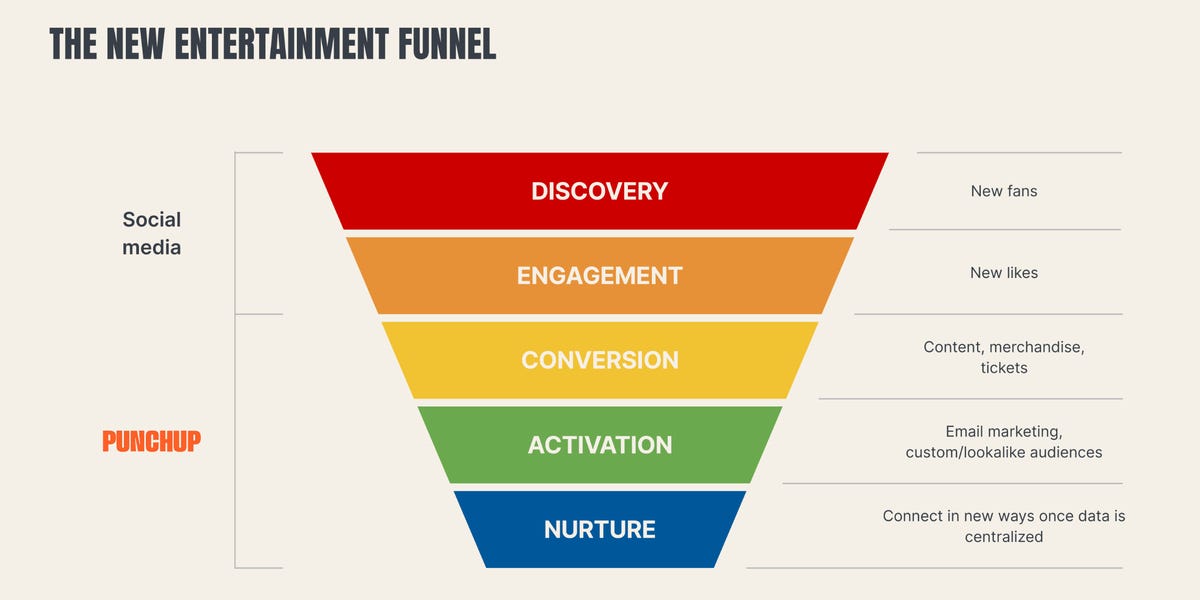A comedian’s career looks different now than it did pre-2020 — before the twin disruptions of the COVID pandemic and TikTok.
Danny Frenkel, the CEO of comedy startup PunchUp Live, said the industry had a pretty standard path to success. Comics would aim to score a special on Comedy Central, Netflix, or HBO to become a big headliner at large venues.
“That broke in the pandemic,” he said.
Comedians would often post specials on YouTube and grow fanbases on TikTok instead. But Frenkel said the problem was comedians were ‘”renting” those audiences from social-media platforms.
Fans of live comedy themselves, Frenkel and his cofounder, Alex Dajani, launched PunchUp in 2023 to answer the needs of comedians who are now reliant on social-media platforms. The startup aims to help comics better understand their audiences with social-media data, streamline ticket sales, and eventually offer comedians a hub for paywalled content.
Some of its earliest comedians include Steve Byrne, Sam Morril, Rachel Feinstein, and Mark Norman. Frenkel said PunchUp has already helped comedians like Morril sell out shows.
“What we see is our responsibility is making sure that everybody who would find Sam funny sees his stuff, and everyone who then finds him funny knows when he’s playing a show,” Frenkel said.
The two founders are former Meta employees. Frenkel worked at Meta for 13 years, most recently as a director for its advertiser ecosystem; Dajani, PunchUp’s CTO, spent four years as a software engineer for Meta, working on products across AI, Reality Labs, and Meta Ray-Bans.
PunchUp helps comedians navigate social-media platforms like Instagram, TikTok, and YouTube. While some comedians are social-media-savvy, others are not, and PunchUp works with comics to run their accounts and edit clips. It also helps comedians translate social-media insights and leverage their data.
“We’re able to understand which platforms are helping them drive tickets most, which days of the week they’re selling tickets most, which type of content is driving those ticket sales,” Frenkel added.
For PunchUp, the focus is solely comedy, and it emphasized this with investors while raising its recent $1 million pre-seed round from venture capital firms Social Leverage, Heracles Capital, Hustle Fund, Evil Twin Capital, and several angels. The round closed in November.
“You can go into a pitch meeting and say my total addressable market is everyone who is creating everything online, whether you’re a TikTok dancer or a beauty influencer, [which] sounds much more appealing to a venture capitalist,” Frenkel said. “But we are very intentional in ensuring that we know the exact problem we’re trying to solve for people and staying very focused on that.”
Fundraising right now isn’t easy, either, Frenkel said: “Transparently, it was humbling.”
But PunchUp intends to stay lean and streamlined, using its latest funding to support its engineering, make technical hires, and build out its current monetization models. So far, it’s generating revenue by inking deals with talent-management agencies, offering ad-hoc social-media services to comedians, and through an early test of a subscription tool (similar to Patreon) for comedians.
Check out PunchUp Live’s 19-page pitch deck:
Note: PunchUp redacted financial projections originally included in the deck.


